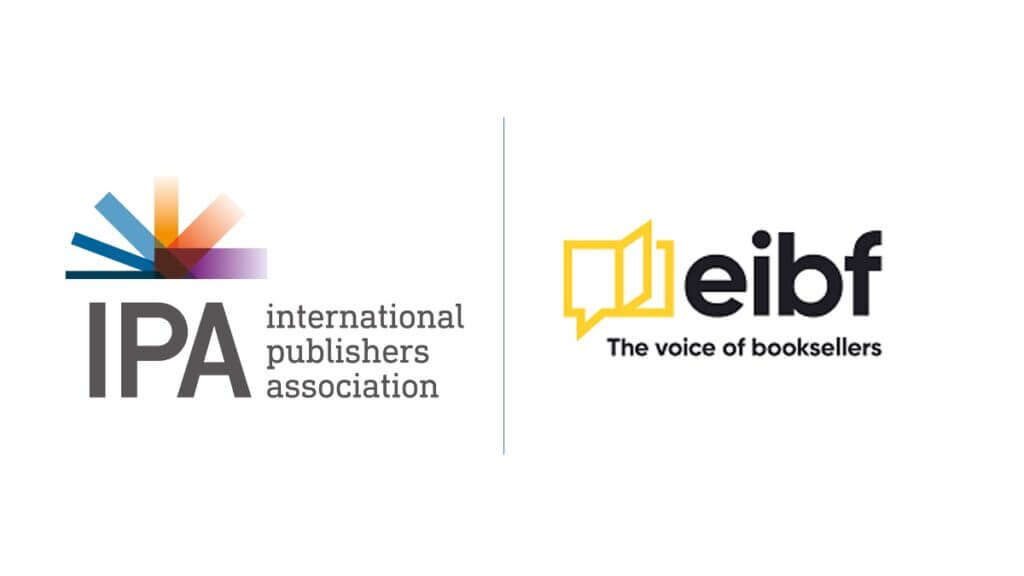Register now to attend the 2023 EIBF Annual Conference in Frankfurt!
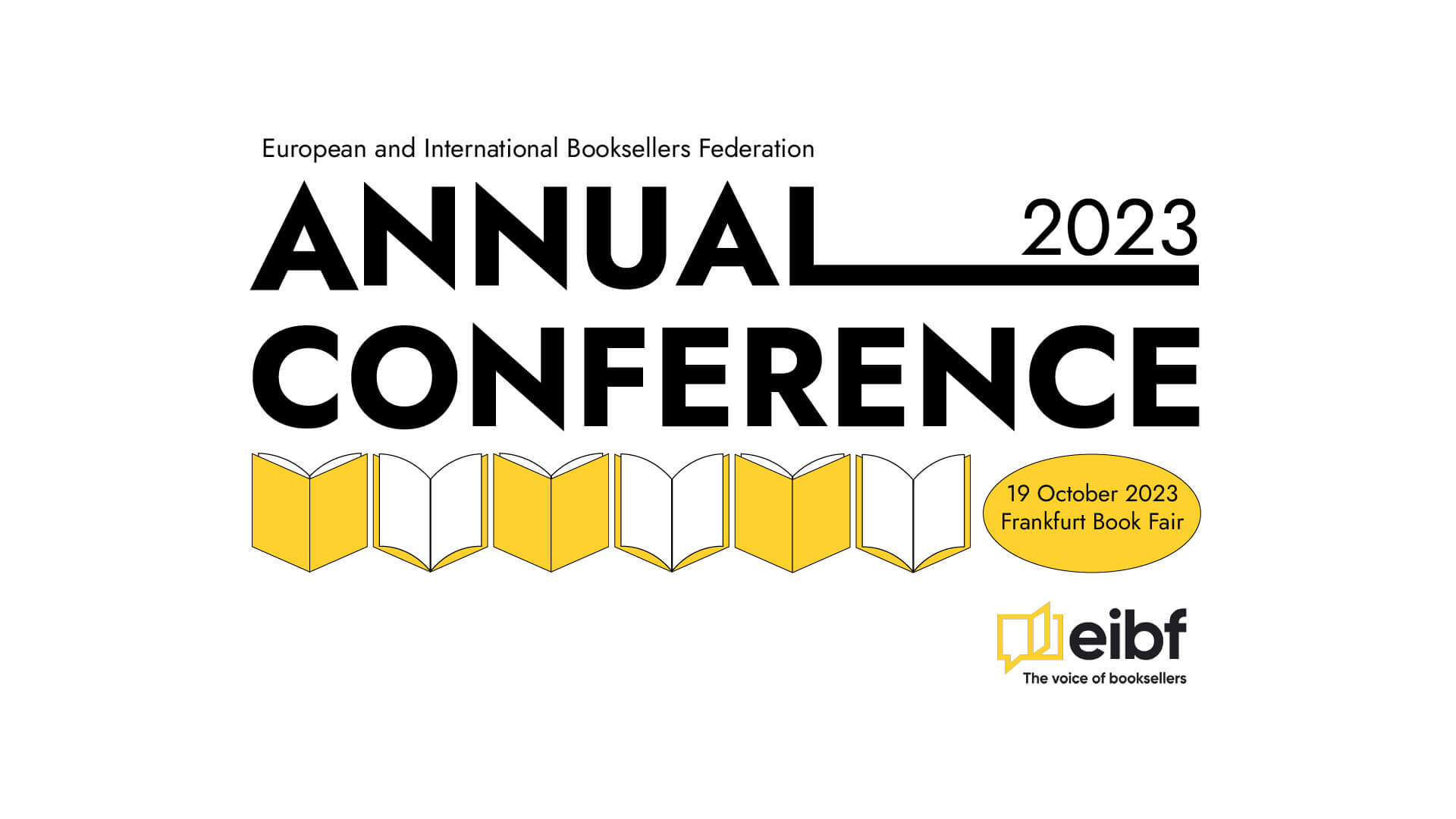
Once again this year, EIBF is thrilled to invite you to a half day of exchanges, discussions and meetings with colleagues
The European and International Booksellers Federation is pleased to once again provide you with a space for sharing knowledge and best practices with key stakeholders in the bookselling industry. We have prepared an exclusive programme -that you can check out here- dedicated to booksellers and booksellers associations, full of inspirational ideas to bring back home, and focused on the future.
The half day conference will be held on Thursday 19 October, at room Fantasie 1 (Congress centre, C3).
Please note that the entrance to the conference is free, but will only be granted upon registration. Please register here before 16 October.
Get to know the speakers

![]()
Tiya Hapitiawati
Literary Translator (Indonesia)
Tiya Hapitiawati is a literary translator from German language into Indonesian language.
She graduated from Universitas Indonesia with a bachelor degree in Humanities, majoring German Studies, and with a masters degree in Linguistics. She has translated several German classical and contemporary literary works into Indonesian language, such as the works of Hans Fallada, Stefan Zweig, Ricarda Huch, Jeremias Gotthelf, and Herta
Müller. The translation of Walter Benjamin's essays is her newest project and will be published this summer.
Apart from translating classical and contemporary works from German authors, she is also acquisition editor of Moooi Pustaka Publisher, a publishing firm based in Jakarta and Yogyakarta, Indonesia.

![]()
Iris Hunscheid
Bookseller and EIBF Board Member
She has been happily working in the book industry since 2001.
Together with her husband she owns two retail book shops in Germany, one in the north (near Bremen) and one in Bonn (in the west).
They are both retail shops with general assortments with only a few specialized sections.
(One of the shops has a shop size of 120 m² and the other one 160 m². They have 13 employees altogether.)
Besides their two shops she is also engaged in the German booksellers association – as the Chairwoman of the independent bookseller’s forum – representing about 500 smaller independent bookshops in our association.

Hazel Kenyon
Director of Research, Book Research at NielsenBookData
Hazel Kenyon is Director of the UK and Ireland Nielsen BookData Research business. She joined in 2009 as a Publisher Account Manager working with a portfolio of clients to help
them analyse the BookScan sales data.
She is now responsible for all UK, Irish and South African client relationships in publishing, retail and media and for strategic business development across all the
research products measuring changes in print, digital and consumer behaviour.
Hazel started her career as a Space Physicist, working in industry and academia. For her PhD she analysed particle data from the Cassini spacecraft during its grand tour of Saturn.

Kate Layte
Founder, owner, buyer, bookseller at Papercuts Bookshop in Boston, MA
Kate Layte is the founder and owner of Papercuts Bookshop, the award-winning independent bookshop located in the beautiful Boston neighborhood of Jamaica Plain.
Kate established Papercuts in 2014 after a decade in the book business--both at Borders and Hachette. Papercuts started in a tiny 400 square foot space, and Kate relocated the shop to a beautiful corner storefront in 2020 where Papercuts is now thriving despite the pandemic and two cars crashing into our shop in April 2022.
Papercuts has received national and international press, won Best of Boston, Boston's Best, and Kate was named a PW Star Watch Honoree in 2017.

Cheryl Lee
Owner of 44th & 3rd Bookseller in Atlanta, GA
Cheryl Lee is the co-owner of 44th & 3rd Bookseller located in Atlanta, GA. Her husband Warren and her daughter Allyce are also co-owners of 44th & 3rd Bookseller.
The family owned bookstore opened in November 2017 and specializes in African American and African diaspora literature.
Their concept for book selling was adapted from Cheryl's Master's thesis on the plight of independent bookstores and a strategy for success.

![]()
Daniel Martín Brennan
Policy Advisor at EIBF
Daniel Martin Brennan is EIBF’s Policy Advisor. Prior to joining EIBF in early 2020, Daniel studied European studies and European policy in London, Berlin and Amsterdam, before settling in Brussels, where he completed a traineeship at the European Commission, working on the implementation of European projects on non-discrimination, gender equality and the protection of LGBTQ+ rights.

![]()
Sulagna Mukhopadhyay
Literary Translator (India)
Sulagna Mukhopadhyay is a translator from German language into Bengali. She has Masters both in Comparative Literature from Jadavpur University, Kolkata and in English Literature from Jodhpur National University, Rajasthan.
She has completed till C1 from Max Műller Bhavan/Goethe-Institut Kolkata. She has interest in Gender Studies and has translated poems, short story collection and novels by German authors like Kathrin Schmidt, Markus Kirchhofer, Hannah Ahrendt and Christa Wolf.
She is currently working on Tauben fliegen auf, a novel by Melinda Nadj Abonji. She has also written articles on German authors and Germany after reunification for various reputed Bengali and English journals. In 2021, she has edited the yearly journal published by Rritobak, a Bengali Publication

![]()
Zala Zagorsek
Literary Agent at VigeVageKnjige (Slovenia)
Since 2020, Zala Zagorek Golob has been employed at VigeVageKnjige. She sells and purchases foreign rights, with a focus on graphic novels and comic books. She also organizes events, produces shows, and is the manager of a brand-new bookstore in Maribor.

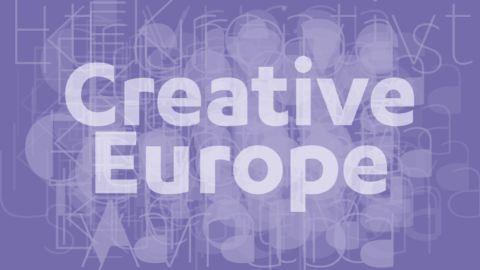

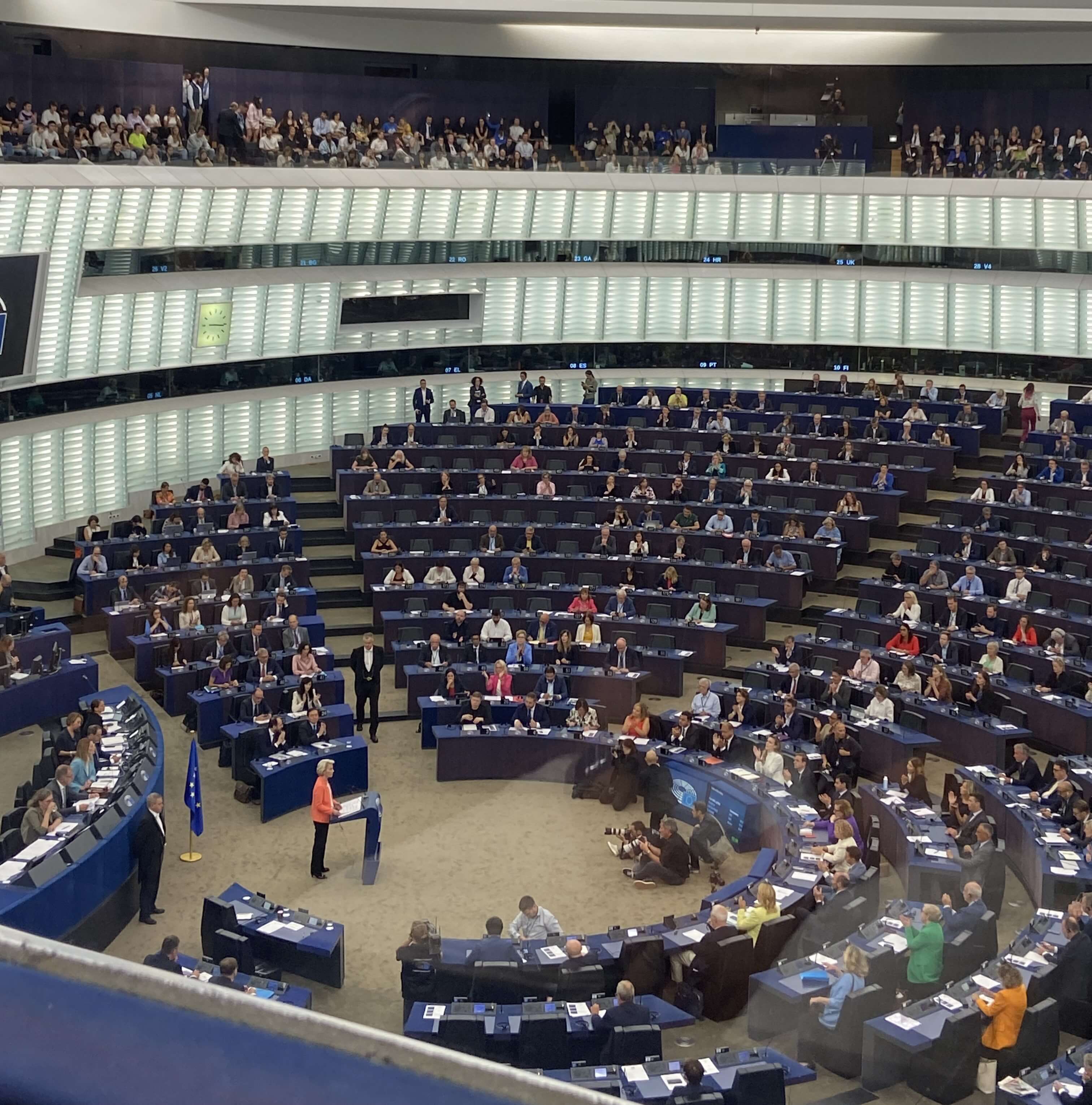






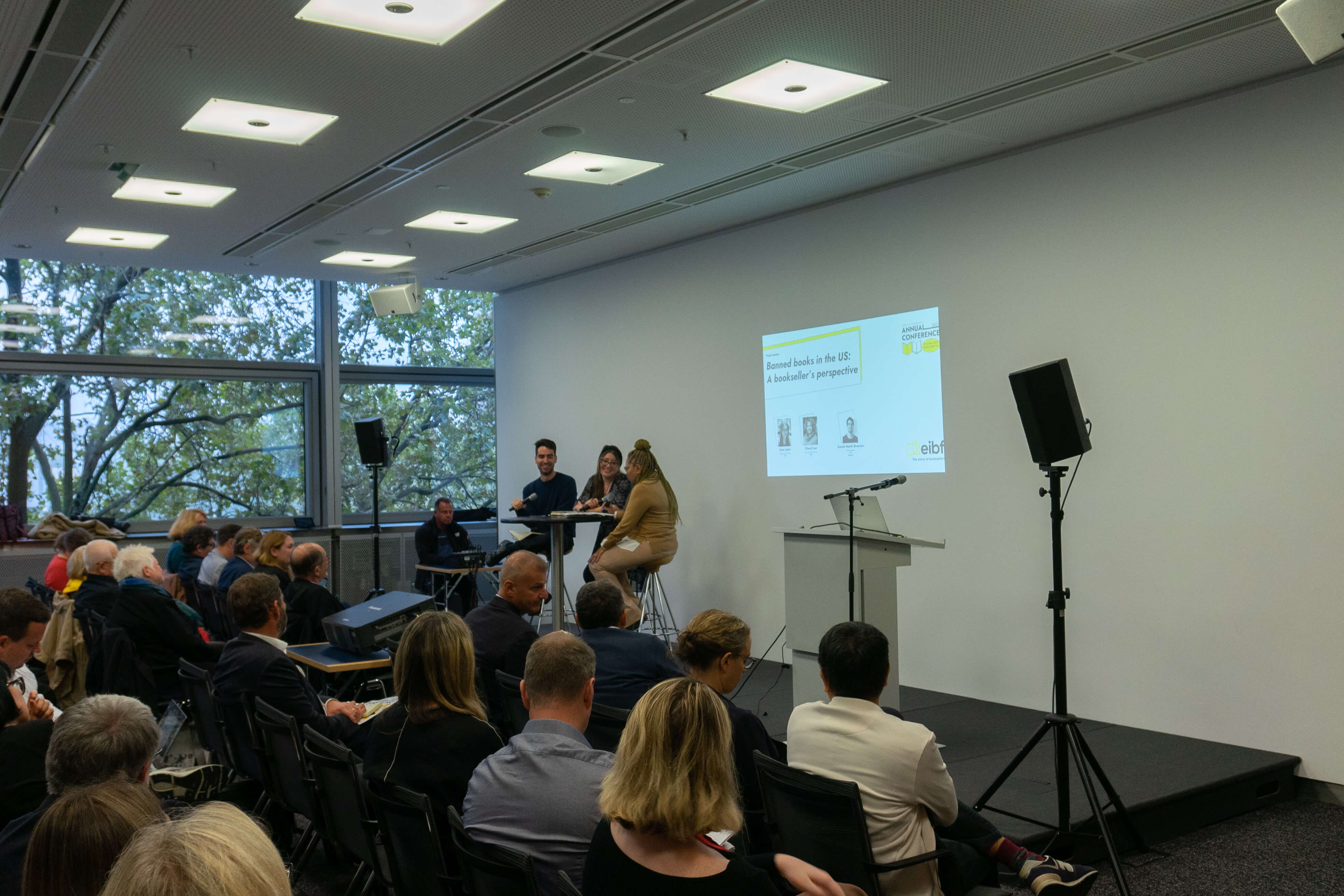
 The now traditional group photo of the entire EIBF Secretariat team, following the opening ceremony of the 75th Frankfurter Buchmesse
The now traditional group photo of the entire EIBF Secretariat team, following the opening ceremony of the 75th Frankfurter Buchmesse
 EIBF's Policy Advisor Daniel Martín Brennan, at the 3rd Sustainability Summit, organized by IPA in Frankfurt
EIBF's Policy Advisor Daniel Martín Brennan, at the 3rd Sustainability Summit, organized by IPA in Frankfurt The European Union Prize for Literature winners Jasmin B. Frelih (2016, Slovenia), Martina Vidaic (2023, Croatia), and Iva Pezuashvili (2022, Georgia) at the Frankfurt Studio. Image: Johannes Minkus / Publishing Perspectives
The European Union Prize for Literature winners Jasmin B. Frelih (2016, Slovenia), Martina Vidaic (2023, Croatia), and Iva Pezuashvili (2022, Georgia) at the Frankfurt Studio. Image: Johannes Minkus / Publishing Perspectives

 Georg Haeusler, Director of Culture, Creativity and Sport at DG EAC, European Commission, during his address at the 2023 EIBF Conference
Georg Haeusler, Director of Culture, Creativity and Sport at DG EAC, European Commission, during his address at the 2023 EIBF Conference Representatives from various bookselling schools from all around Europe, after their first meeting in Frankfurt
Representatives from various bookselling schools from all around Europe, after their first meeting in Frankfurt




